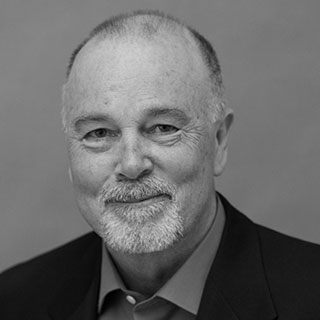
Fleshing out Two Principles for Making Disciples

My conviction has been stated before: Matthew’s gospel is a paradigm for making disciples of Jesus Christ.
This raises the question, “How can we engage Matthew for making disciples?”
In partial answer, I will introduce two basic principles, and provide four means of application.
Two principles
(1) Disciple-makers are to model themselves after Jesus.
(2) Those being made disciples are to identify with the first disciples. Of course, disciple-makers are also disciples.
These principles recognize the continuing fundamental relationship between the ultimate disciple-maker, Jesus, and his disciples.
At Matthew 28:16-20, the remaining eleven are commissioned to make disciples just like Jesus made disciples – despite their failures and hesitancy.
How do disciple-makers model themselves after Jesus, and how do disciples identify with the first disciples?
Here are four ways we can learn from Jesus and the Twelve for making disciples.
1. Instructing
The disciple-maker teaches disciples. What is taught is grounded in Jesus’ life and teaching – and ought to be woven into the life of the disciple-maker.
An obvious instance of this is the Sermon on the Mount (Matthew 5-7). Chapters 1-4 trace something of the early years of Jesus’ life. Then, at 5:1-2, Jesus “went up on a mountainside and sat down. His disciples came to him, and he began to teach them, saying: ...”
For their part, the disciples came to Jesus and listened carefully.
Each of Matthew’s major discourses have a similar purpose (chapters 10; 13; 19; 24-25).
Often, this is the sole way in which we engage disciples – not so with Jesus and his disciples.
2. Observing
The disciples spent a lot of time with Jesus in the normal rhythms of life. They listened, watched, and learned from these experiences.
What were their impressions as they sailed in a storm with Jesus (8:25), or ate in the company of “sinners” with Jesus (9:10)?
Here’s another scene (20:29-34):
As Jesus and his disciples were leaving Jericho, a large crowd followed him. Two blind men were sitting by the roadside, and when they heard that Jesus was going by, they shouted, "Lord, Son of David, have mercy on us!"
The crowd rebuked them and told them to be quiet, but they shouted all the louder, "Lord, Son of David, have mercy on us!"
Jesus stopped and called them. "What do you want me to do for you?" he asked.
"Lord," they answered, "we want our sight."
Jesus had compassion on them and touched their eyes. Immediately they received their sight and followed him.
What lessons were inscribed on their memories and hearts from this incident? What did they learn from Jesus’ response to the crowd, his healing touch, his compassion for the marginalized, and more.
Also consider 12:46-50; 19:13-15; 21:18-22.
3. Questioning
I am amazed at how many questions Jesus asked his disciples.
Questions have a way of unlocking our thinking. Listening to teaching is largely passive – we simply receive information. Questioning makes us active participants. We are invited to engage, explore, and respond.
In the context of Christian community, Jesus asks (18:12),
"What do you think? If a man owns a hundred sheep, and one of them wanders away, will he not leave the ninety-nine on the hills and go to look for the one that wandered off?
He is unlocking the thinking of the disciples on the value of each person.
Here are some other questions Jesus asks his disciples: 16:13-15; 17:24-27.
Questions are a two-way street. The disciples also asked Jesus many questions.
The disciples’ questions reveal their level of comprehension, and what is needed for them to move forward. This does not always mean we answer the question asked. Often, Jesus answered the unspoken, more important, questions.
Here’s a case in point (19:23-29):
Then Jesus said to his disciples, "I tell you the truth, it is hard for a rich man to enter the kingdom of heaven. Again I tell you, it is easier for a camel to go through the eye of a needle than for a rich man to enter the kingdom of God."
When the disciples heard this, they were greatly astonished and asked, "Who then can be saved?"
Jesus looked at them and said, "With man this is impossible, but with God all things are possible."
Peter answered him, "We have left everything to follow you! What then will there be for us?"
These questions manifest a warped view of wealth and the Kingdom.
Is wealth a basis for entry into the Kingdom? Or, are riches how one is rewarded in the Kingdom?
Jesus confronts this mindset, teaching “Kingdom economics” (19:28-20:16): “the last will be first, and the first will be last.”
Other questions the disciples asked Jesus include: 13:10, 26; 15:23; 17:6-13, 16-20; 18:1-5; 19:23-29.
Asking questions and encouraging questions are powerful tools for making disciples.
4. Doing
Have you noticed when disciples go and do something, they usually return excited?
Jesus sent his disciples on assignments that stretched and equipped them.
When I read Matthew 10, I’m not alone in thinking the disciples were being given a task that was too large and too soon. Jesus thought otherwise.
Here’s another situation. Thousands had followed Jesus far from restaurants and grocery stores (14:13-21).
As evening approached, the disciples came to [Jesus] and said, "This is a remote place, and it's already getting late. Send the crowds away, so they can go to the villages and buy themselves some food."
Jesus brought the focus back to the disciples.
[Jesus] directed the people to sit down on the grass. Taking the five loaves and the two fish and looking up to heaven, he gave thanks and broke the loaves. Then he gave them to the disciples, and the disciples gave them to the people.
Other missions include 21:1-7; 26:36-46; 27:57-59; 28:16-20.
Take-aways
We make a big mistake when we limit discipleship training to programs, or periodic chats at Starbucks.
Disciple-makers: follow Jesus as your model for making disciples. Teach what Jesus taught; use questions the way that Jesus used questions; do the same kind of things with disciples as Jesus did.
Disciples: identify with the Twelve. Come and be taught; observe and grow; respond to, and ask, questions; go and do the same kind of things as the Twelve.
I have used the phrase “the same kind of things.” We may not encounter 5,000 hungry people in a remote place, or be commanded to walk on a stormy sea – but we will encounter hungry people without resources, and be commanded to do things we have never experienced before.
We'll explore this idea of the “same kind of things” in a future post.
What do you have to add?
This article has been reposted with permission from Living Theology. It originally appeared as an article within a series of blog posts called “Matthew Paradigm" You can access the entire blog series HERE. You can also read the next blog in this series “Disciple, what will you do?” HERE.
 John B. MacDonald's focus is equipping and encouraging others to become more like Jesus Christ and to live all of life with God-honoring competence and joy. Since the 1970s, teaching the Bible and practical theology has taken John to four continents. In 2003, John chose between a busy practice in law and a full schedule of Bible teaching. His decision led to being pastor-teacher of a Metro-Vancouver church community, and now he continues serving, teaching, and writing with Outreach Canada. John B. MacDonald earned B.Com. and J.D. degrees (UBC), M.A. in Biblical Studies (Regent), and D.Min. (TWU). His doctoral dissertation combined his theological and legal backgrounds at the intersection of leadership, conflict, and spiritual formation. You can contact John B. MacDonald through his website Living Theology.
John B. MacDonald's focus is equipping and encouraging others to become more like Jesus Christ and to live all of life with God-honoring competence and joy. Since the 1970s, teaching the Bible and practical theology has taken John to four continents. In 2003, John chose between a busy practice in law and a full schedule of Bible teaching. His decision led to being pastor-teacher of a Metro-Vancouver church community, and now he continues serving, teaching, and writing with Outreach Canada. John B. MacDonald earned B.Com. and J.D. degrees (UBC), M.A. in Biblical Studies (Regent), and D.Min. (TWU). His doctoral dissertation combined his theological and legal backgrounds at the intersection of leadership, conflict, and spiritual formation. You can contact John B. MacDonald through his website Living Theology.